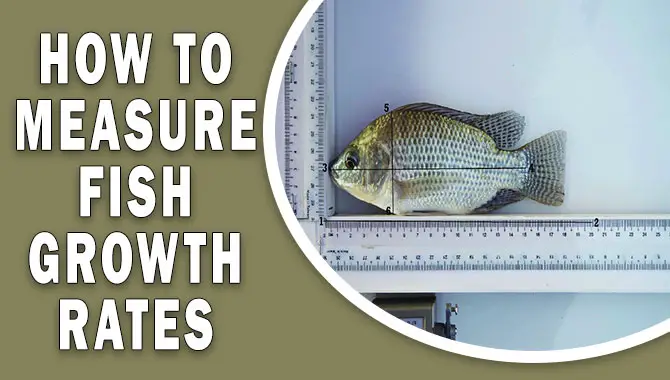Fish physiology is an incredibly complex and fascinating field of study, encompassing thousands of fish species’ anatomy, behaviour, and physiology.
Whether you’re a student, researcher, or simply an avid aquarist, understanding fish physiology is essential for gaining a deeper appreciation and understanding of these remarkable creatures. However, with so much information available, it can be challenging to know where to start. That’s where this ultimate guide on how to study fish physiology comes in.
However, We’ll start by discussing the basics of fish anatomy, including their external and internal structures, before moving on to their physiology, including respiration, circulation, and digestion. We’ll also explore the various behavioural adaptations fish have developed to survive and thrive in their respective environments.

How To Study Fish Physiology- Expert Tips
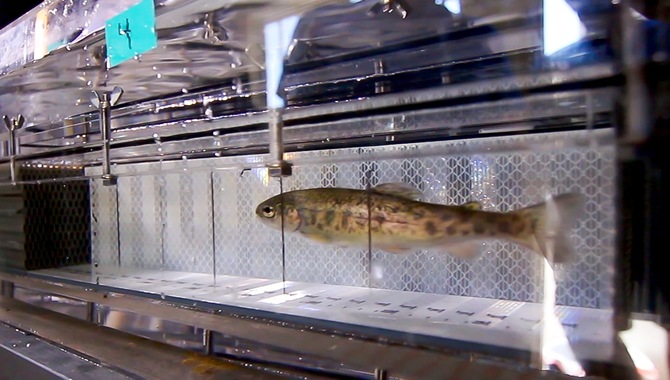
To become an expert in fish physiology, it is important to understand the basis of anatomy and physiology before commencing your study. Utilizing resources such as textbooks, scientific journals, and online courses can provide additional insights into fish physiology. Additionally, performing hands-on experiments through dissection will aid in gaining practical knowledge.
Networking with other professionals in this field will keep you updated with recent research developments and crucial aspects like fisheries, ecology, salinity levels, endocrinology, respiration & osmoregulation, which play an essential role in aquaculture practices. Studying adaptations through physiological processes like metabolism and digestion will better understand individual fish’s biology.
Keeping track of environmental changes will aid in stress responses and physiological adaptations for aquatic animals like teleost fish or cartilaginous fish. How to study fish physiology? Here are some tips to help you study fish physiology like a pro:
1. The Basics Of Fish Metabolism
Fish physiology is incomplete without understanding the process of fish metabolism that converts food into energy. Factors like environmental conditions and species affect the unique ability of fishes to adjust their metabolism. Researchers study it by measuring oxygen consumption rates or metabolic enzymes through biochemical assays.
Understanding fish metabolism is crucial for comprehending physiological processes like growth and reproduction. This knowledge can help us improve aquaculture practices and fisheries management in an ever-changing climate affecting aquatic species’ physiology.
2. Fish Nutrition And Digestion
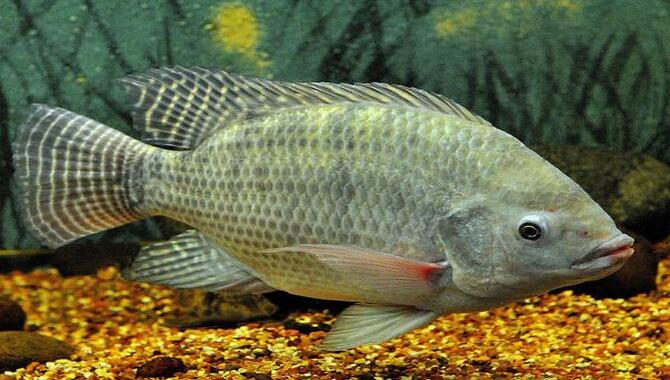
Studying fish physiology plays a crucial role in developing sustainable aquaculture practices while protecting wild fish populations. For farmed fish to thrive, knowledge of the digestive system is imperative to refine feed and enhance overall health.
Fish require three primary macronutrients (protein, carbohydrates, and lipids) and essential vitamins and minerals that facilitate metabolic processes.
By studying the macromolecules’ digestion and assimilation along with vitamins’ roles in physiological processes like osmoregulation or acid-base balance regulation will provide a thorough understanding of the nutritional requirements of individual fish under varying environmental conditions. This information is essential for developing effective aquaculture management strategies.
3. Fish Respiration
Fish respiration is a crucial process for understanding the physiology of aquatic animals. It involves extracting oxygen from water and releasing carbon dioxide. The process can be affected by factors like water temperatures, pH, dissolved oxygen levels, and salinity.
Different species of aquatic animals may have different respiratory systems and mechanisms adapted to their environment. Researchers study this process to gain insights into how these animals adapt to environmental changes caused by climate change or other factors.
Understanding fish respiration is fundamental in developing sustainable aquaculture practices and protecting wild fish populations.
4. Fish Circulation
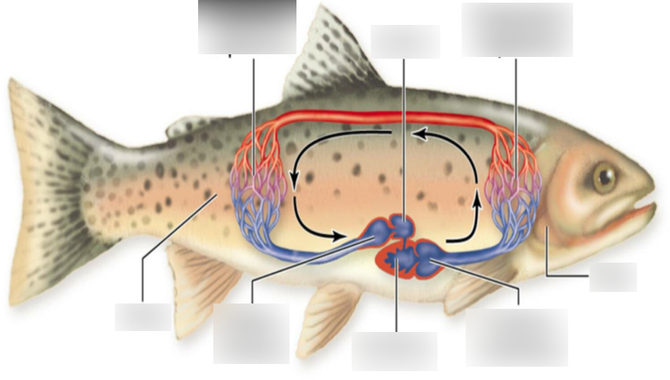
Fish circulation plays a crucial role in how fish adapt to changing environmental conditions. Circulation involves the movement of blood and nutrients throughout the body, and understanding its anatomy is imperative for effective study.
Fish have a single-loop circulatory system where their heart pumps blood to the gills for oxygenation, which helps in improving respiration, metabolism, and energetics. Factors such as water temperatures, salinity, climate change, environmental changes, and stress responses can affect this function.
Researchers studying fish physiology often analyze different aspects of circulation, such as cardiac output, heart rate variability, oxygen consumption, and acid-base balance maintenance mechanisms, among others. Such studies provide insights into how fish respond to environmental challenges and facilitate sustainable aquaculture practices while protecting wild fish populations.
5. Fish Excretion And Osmoregulation
To comprehend how fish adapt to changing environmental conditions, it’s essential to understand the physiological processes involved in fish excretion and osmoregulation. Fish excretion works towards balancing water and electrolytes in their bodies, while osmoregulation maintains the concentration of ions and molecules in their body fluids.
Researchers use various techniques, such as histology and microscopy, to study fish physiology. Studying fish physiology can provide insights into adaptations made by individual fish concerning different aquatic species. Having a robust understanding of basic biology and chemistry is critical before diving deep into studying fish physiology.
6. Fish Reproduction And Development
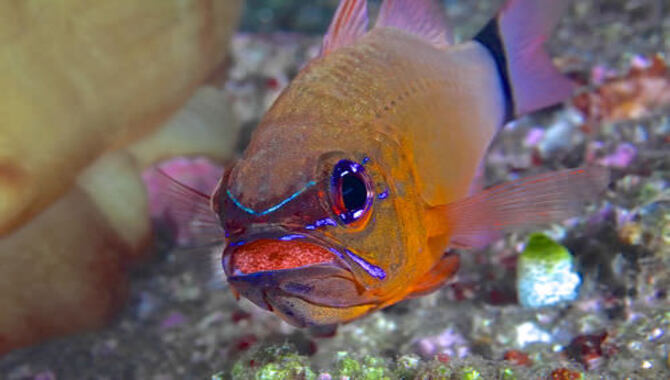
Researchers conduct studies on environmental cues for factors such as hormone levels and genetic influences on the reproductive aspect of fish physiology to understand the behaviour of different aquatic animals about their breeding patterns.
To do this efficiently, they incorporate techniques like molecular biology and histology to view specific physiological processes responsible for reproduction. The knowledge they gain helps develop sustainable fishing practices aimed at conserving fish populations while still allowing for the continued growth of fisheries worldwide.
Fish physiology is a complex topic covering everything from ecology to salinity adaptations in individual fish based on environmental changes with a focus on a range of physiological adaptations like osmoregulation or respiration, which all play a significant role in ensuring that aquatic species thrive under diverse circumstances.
7. The Importance Of Water Quality In Fish Physiology
When studying fish physiology, it is important to understand water quality’s crucial role in their overall health and well-being. Fish rely heavily on the water they live in for oxygen, food, and waste removal.
Poor water quality can significantly impact their ability to survive and thrive. Factors such as temperature, pH levels, dissolved oxygen content, and pollutants can all affect fish physiology in different ways.
For example, high levels of ammonia or nitrite in the water can cause damage to a fish’s gills and impair its ability to breathe. As a result, it is essential to carefully monitor water quality when studying fish physiology in order to ensure accurate research results and promote the health of these aquatic creatures.
8. Benefits Of Studying Fish Physiology
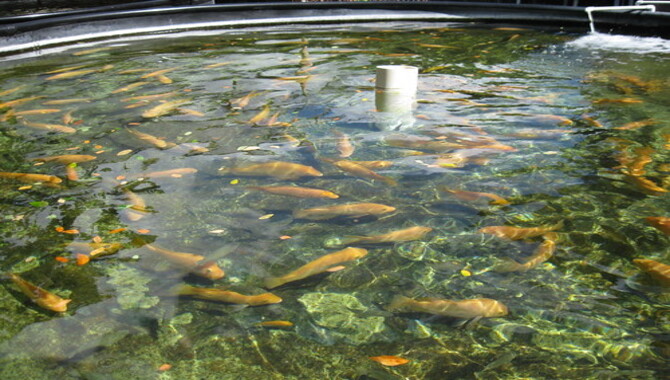
Studying fish physiology can have many benefits, both for individuals and for society as a whole. For one, studying fish physiology can help us better understand the biology of fish and their role in aquatic ecosystems. This knowledge can inform fisheries management and conservation efforts.
Which can ultimately benefit both fish populations and those who rely on them. Additionally, studying fish physiology can also have practical applications in fields such as aquaculture and biotechnology.
By understanding how fish function at a cellular and molecular level, we can develop new technologies and techniques for improving the health and productivity of farmed fish and creating new medicines and other products derived from fish. Overall, studying fish physiology is a fascinating field with wide-ranging implications for science, industry, and the environment.
Why Is Fish Physiology Important?
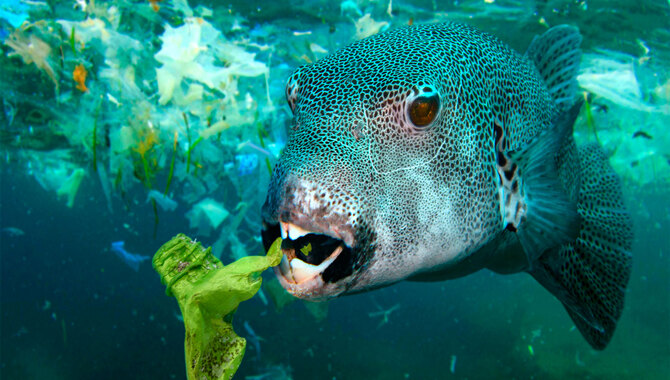
Fish physiology is an important field of study with many practical applications. Understanding how fish function physiologically can help us better manage and conserve fish populations and improve the aquaculture industry. For example, by studying how fish respond to changes in their environment. We can understand how climate change may affect different species and ecosystems.
Additionally, understanding different fish species’ nutritional requirements can help us develop more sustainable and efficient aquaculture practices. Ultimately, a thorough understanding of fish physiology is critical for anyone working in fisheries management, aquaculture, or marine biology.
Conclusion
To become a master in fish physiology, you need to have a solid understanding of the basics. Fish metabolism, nutrition, digestion, respiration, circulation, excretion and osmoregulation, reproduction and development, and water quality all play an essential role in understanding fish physiology.
Studying fish physiology is important not only for aquaculture but also for conservation biology. It helps us understand how environmental changes impact fish populations and their ecosystems. Moreover, it can help develop new drugs and medical treatments.
Remember to stay organized, utilize available resources, and seek assistance from experts in the field when necessary. We have discussed on how to study fish physiology above mentioned. You can become a proficient fish physiologist with dedication and hard work and contribute to our understanding of these fascinating creatures.
Frequently Asked Questions
What Is The Physiology Of Fish?
Fish physiology involves the study of their anatomy, behaviour, and biochemistry. Fish extract oxygen through gills and have a unique circulatory system with a two-chambered heart. Their digestive, reproductive, and sensory systems are also important areas of study in fish physiology.
Why Is It Important To Study Fish Physiology?
Exploring fish physiology is essential to comprehend the biology and ecology of fish, including their migration patterns, behaviour, and reproductive strategies. It allows the development of sustainable fisheries management practices and can have implications for human health and medicine.
What Is The Difference Between Fish Anatomy And Fish Physiology?
Fish anatomy pertains to the physical makeup and arrangement of organs in a fish’s body, while fish physiology deals with how those organs function together to sustain life. Knowing both is essential for fisheries biologists, fish veterinarians, and aquaculturists to manage populations and improve farming practices.
What Is The Study Of The Anatomy Of A Fish Species?
Fish morphology is the study of fish’s internal and external structures, which aids in understanding their evolutionary history. It is crucial for proper aquaculture and fisheries management.
What Are Some Of The Key Physiological Systems In Fish?
Fish possess a distinctive respiratory system enabling them to breathe underwater, and their circulatory system transports oxygen and nutrients. Their digestive system comprises specialized organs to digest food, and they have a sensory system that helps detect changes in the environment.

Aquarium passion is all about connecting with the aquatic life and providing education to the public on the importance of these creatures. We showcase a wide variety of marine life through our exhibits as well as working with schools to provide unique learning opportunities for students of all ages.


